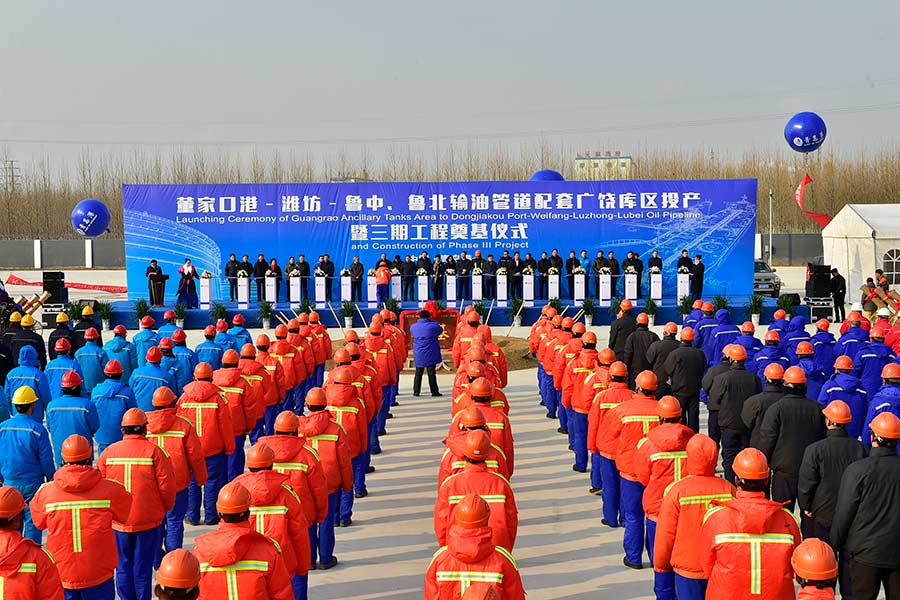Qingdao Port starts work on second crude oil terminal
By Xie Chuanjiao | chinadaily.com.cn | Updated: 2019-01-04 14:24

Qingdao Port, China's largest port for handling inbound crude oil, has started construction on its second 300,000-ton crude oil terminal in its Dongjiakou port area.
The terminal is expected to be completed and put into operation by the end of 2019. Dongjiakou port will be able to handle 50 million tons of crude oil annually once the terminal starts operating.
"The hydraulic structure of the new oil wharf is designed to berth 450,000-ton oil tankers. In addition, a water transfer terminal with a hydraulic structure designed to dock 120,000-ton crude oil carriers will also be constructed," said Li Fengli, the new president of Qingdao Port Group.
Qingdao Port serves as the largest oil transport, transfer and storage base in coastal China and ranks first in the country for amount of crude oil loaded and unloaded. It accounts for about 16 to 18 percent of total crude imports into China.
The port currently has 12 crude oil berths, two crude pipelines and a storage capacity totaling around 17.32 million cubic meters.
To better serve the Shandong-based refineries' robust demand for crude imports, Qingdao Port has expanded its crude pipeline further to Dongying, Shandong province's refining hub.

The Guangrao Ancillary Tanks Area to Dongjiakou Port-Weifang-Luzhong-Lubei Oil Pipeline was put into operation on Dec 27.
Dedicated for refineries around Weifang, Dongying and Binzhou cities, the project will further cut the logistics cost for local refineries.
Construction of the project's third phase has also started. Once completed, the network will be able to transmit around 30 million mt/year of crude and its total storage capacity will reach 5.46 million cubic meters.
According to statistics, since the first phase of the project was put into operation in August 2017, more than 9 million tons of crude oil has been operated accumulatively, which is equivalent to 300,000 times the capacity of traditional shipping of crude by trucks and saved 185 million yuan in logistics costs for refineries.
























